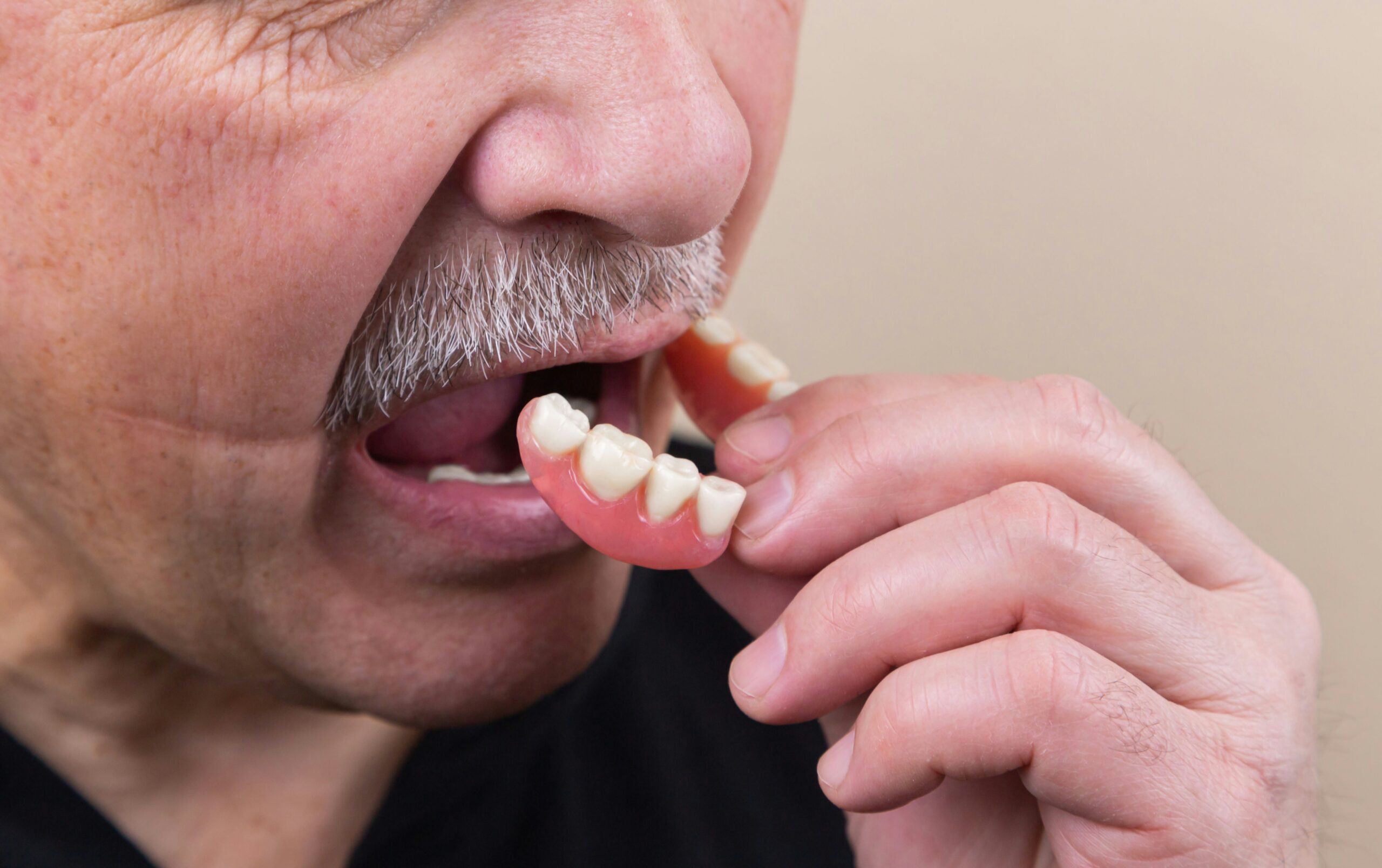Full vs Partial Dentures
The Purpose of Dentures
Dentures are prosthetic devices designed to replace missing teeth, support facial muscles, and improve your ability to eat and speak with ease.

Full Dentures
Understanding Partial vs Full Dentures
Partial dentures are designed for individuals who still have some natural teeth remaining, acting as a bridge to fill in the gaps left by missing teeth and prevent the remaining teeth from shifting position. They are usually preferred when the natural teeth are strong enough to support the structure of the denture. On the other hand, full dentures are required when all the teeth in either the upper or lower jaw (or both) are missing, providing a complete replacement that rests on the gums.
How are Full and Partial Dentures Held in Place?
Partial dentures are typically held in place by clasps or precision attachments that fit around some of the remaining natural teeth. These clasps can be made of metal or a tooth-colored material, designed to be both functional and aesthetically pleasing. The partial denture fills in the space left by missing teeth and prevents the other teeth from changing position. Some partial dentures are removable, making them easy to clean, while others can be fixed (also known as bridges), offering a more permanent solution. The stability and retention of a partial denture depend greatly on the health and positioning of the remaining natural teeth that serve as anchors.
Full dentures, on the other hand, are held in place primarily through suction and, in some cases, adhesive creams or gels. The base of a full denture is designed to closely fit the contours of the individual’s gums and the roof of the mouth (for upper dentures), creating a vacuum that secures the denture in place. Lower full dentures rely more on the gum line’s shape for stability and can be more challenging to keep in place due to the tongue’s movements. Denture adhesives can be used to improve the fit and feel of full dentures, providing additional security and comfort.
Both types of dentures may require adjustments over time to maintain a good fit, as the mouth’s shape changes due to factors like bone resorption and gum shrinkage. Regular dental check-ups are important for denture wearers to ensure their dentures continue to fit well and remain comfortable. Additionally, advancements in dental technology, such as implant-supported dentures, offer alternative methods to increase the stability and retention of both partial and full dentures, providing options for those seeking a more secure fit.
How Do I Care for Full or Partial (Removable) Dentures?
- Daily Cleaning: Both full and partial (removable) dentures should be removed and cleaned daily using a soft-bristle denture brush and a non-abrasive cleaner specifically designed for dentures. Regular toothpaste should be avoided as it can be too harsh and scratch the denture surface.
- Rinse After Eating: Remove and rinse the dentures after eating to clear away food remnants and plaque.
- Soak Overnight: Both full and partial dentures should be soaked in water or a mild denture-soaking solution overnight as recommended by your dentist, but this is especially important for full dentures, as most of them need to remain moist to keep their shape.
- Avoid Certain Products: Don’t use abrasive cleaners, bleaches, or boiling water to clean dentures, as these can damage them.
How Do I Care for Fixed Partial Dentures / Dental Bridges?
- Brush Regularly: Use a soft-bristled toothbrush to clean the surface of the dentures and your natural teeth. Brush at least twice a day to remove plaque and prevent tartar buildup.
- Use Floss Threaders: Floss threaders can help you guide dental floss under the fixed partial denture to clean the area between the denture and your natural gums, reducing the risk of gum disease and tooth decay.
- Water Flossers: A water flosser can be an effective tool for cleaning around fixed partial dentures, providing a stream of water that can help dislodge food particles and plaque.
- Professional Cleanings: Schedule professional cleanings as recommended by your dentist to remove tartar and plaque that can’t be eliminated with home care.